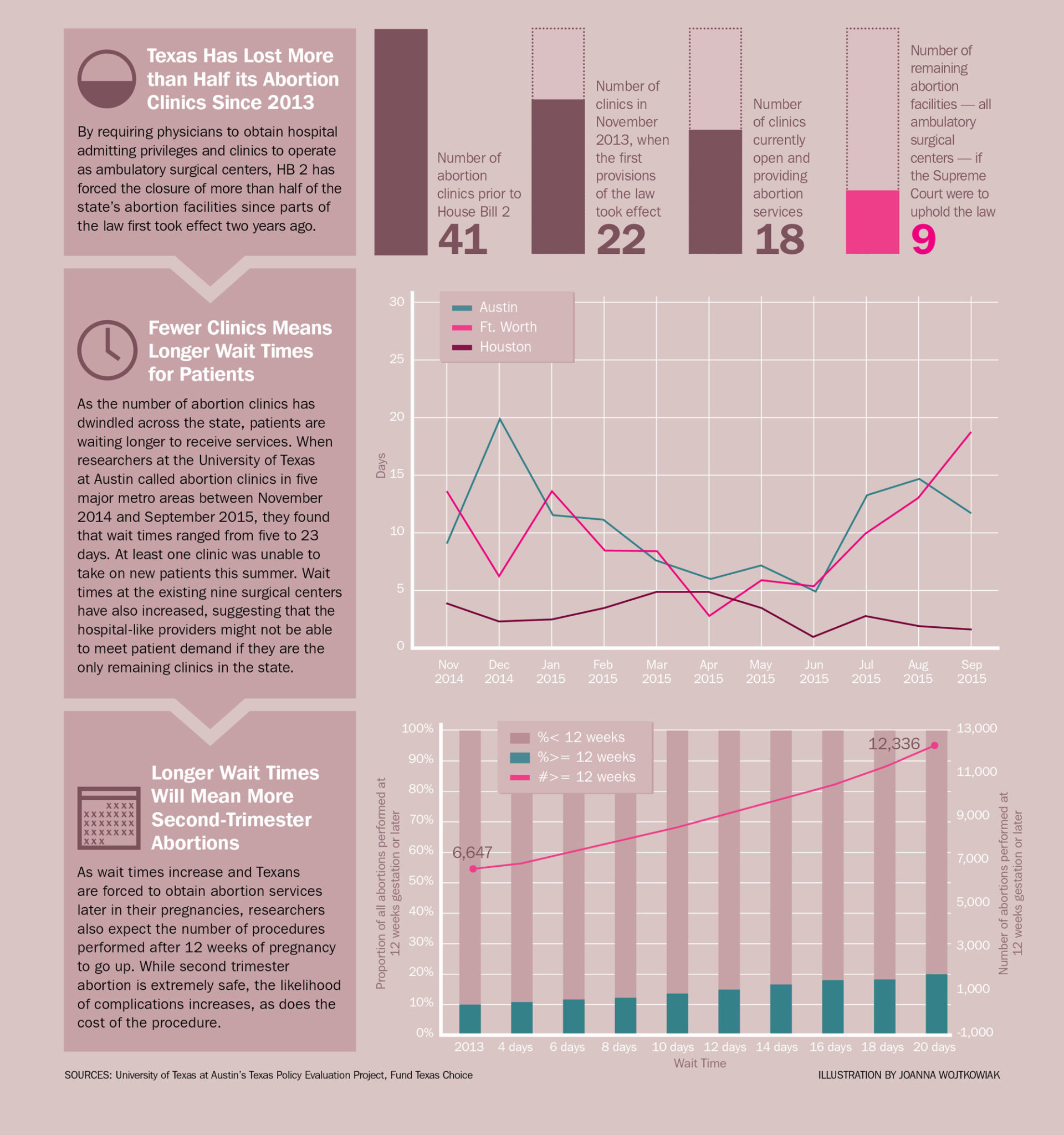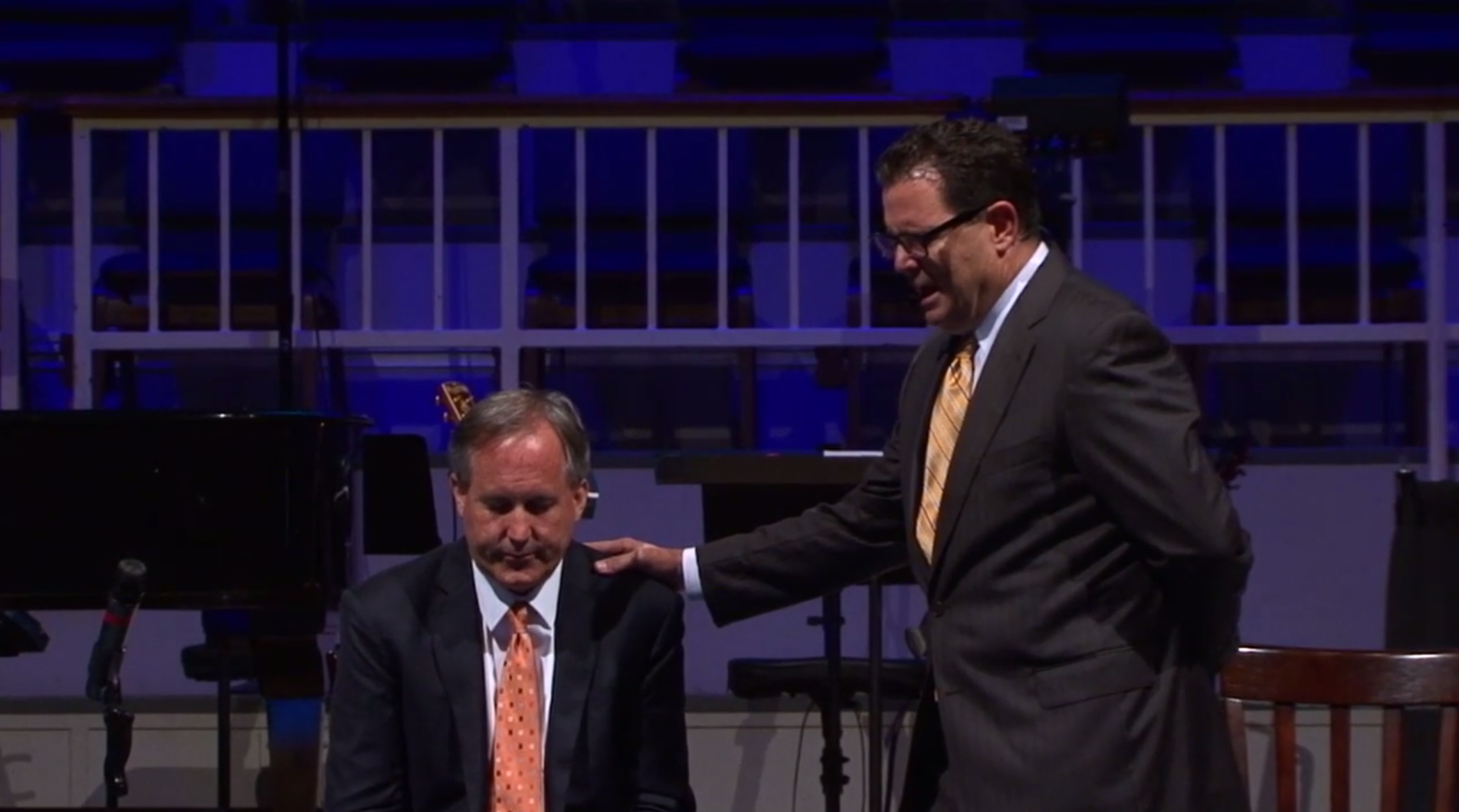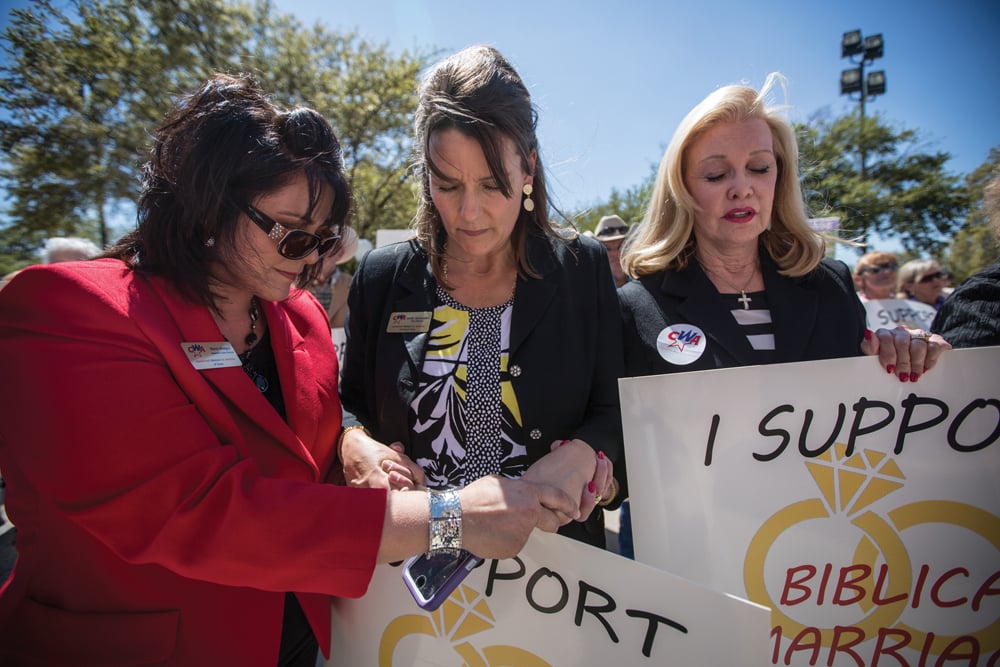
Is 2015 the Year for Medical Marijuana in Texas?

Above: Vincent Lopez, is founder of the Patient Alliance for Cannabis Therapeutics.
Timothy Dasher’s 12-year-old daughter, Felicity, has epilepsy and suffers from frequent seizures. She usually has to wear a helmet to protect her head from the sudden falls, which have bruised and broken her small body. Today she wore an enormous pink-and-white bow in her hair as she and her father stood with dozens of activists at the Capitol in support of legislation that would allow Texans to legally access medical marijuana.
Dasher and other activists are getting behind House Bill 3785, and its companion Senate Bill 1839, legislation giving patients who have a doctor’s recommendation to acquire and use marijuana. Proponents of the legislation say that medical marijuana has many of the same treatment benefits as prescription medications without as many of the harmful side-effects.
Dasher says his daughter tried 15 different pharmaceutical drugs over 10 years to try to stop the seizures. None of them worked, he said. If anything, they seemed to make the condition worse. But when the family moved to Colorado, and started using medical marijuana. “We found her miracle,” he said. He hopes that medical marijuana will be legalized this session, so they don’t have to leave their Granbury home again.
Rep. Marisa Marquez (D-El Paso), author of HB 3785, said in a press conference this afternoon that Texas needs to take a “scientific and reasoned approach” to medical marijuana, and allow patients and doctors to choose their best treatment plan.
“The support we see here today is a clear indication that the Legislature needs to take the suffering of these Texans seriously,” Marquez said.
She calls her 40-page bill “comprehensive,” and says that it includes safeguards to prevent misuse of the drug. The bill would allow the Department of State Health Services to establish a regulated system of licensed cultivators and dispensaries.
Marquez’s legislation is more detailed and ambitious in scope than other medical marijuana bills filed this session and in previous ones. In 2013, Rep. Elliott Naisthat (D-Austin) carried a bill that would have given patients using medical marijuana an affirmative defense if they were arrested on charges of possession. That bill, HB 594, was left pending in committee.
This session, three Republican legislators filed bills that would legalize access to cannabidiol (CBD), one of the 85 active ingredients in cannabis. CBD has been effective at treating some epilepsy patients, but many patients need other components of marijuana, including THC, to effectively treat their symptoms. HB 3785 and SB 1839 would allow access to whole marijuana and oils that have a more balanced ratio of CBD and THC.
Vincent Lopez, outreach director for the Patient Alliance for Cannabis Therapeutics, began using medical marijuana in 2009 to treat muscle spasms. For the last 25 years, Lopez has used a wheelchair, while struggling with Becker muscular dystrophy, a condition characterized by slowly worsening muscle weakness. He says marijuana acquired on the black market doesn’t have consistent results. There are multiple strains of cannabis, and some are more effective at treatment for certain medical conditions than others. With the black market product, Lopez says, you never know what strain you’re getting.

Under the proposed legislation, patients who have specific illnesses or disorders listed in the bill—such as cancer or epilepsy—would qualify for access. The bill also includes people who experiences chronic and severe pain, or suffer from a symptom deemed “debilitating” by the Department of State Health Services.
Medical marijuana is legal in 23 states. According to a 2013 poll by the Marijuana Policy Project, 58 percent of Texas voters believe that seriously ill patients should be allowed to use medical marijuana if they have a doctor’s recommendation to do so. A Texas Tribune poll from last year, found that 77 percent of Texans support the legalization of marijuana for at least some uses.
On Monday, Gov. Greg Abbott said in a press conference that marijuana decriminalization is not likely to happen this session. He said that Texas should divert “away from activity that involves drug use and helping people lead more productive lives.”
Many patients argue that medical marijuana is the key to living a productive, pain-free life.
Marquez said in the press conference that the biggest challenge to passing this legislation is education.
“I think many people when they hear marijuana, immediately, there’s an apprehension about what exactly we’re trying to do here,” she said.
She hopes she’ll be able to help her colleagues understand every aspect of the bill, to alleviate those types of concerns. HB 3785 and SB 1839 were both filed last week and neither has been assigned to a committee.


